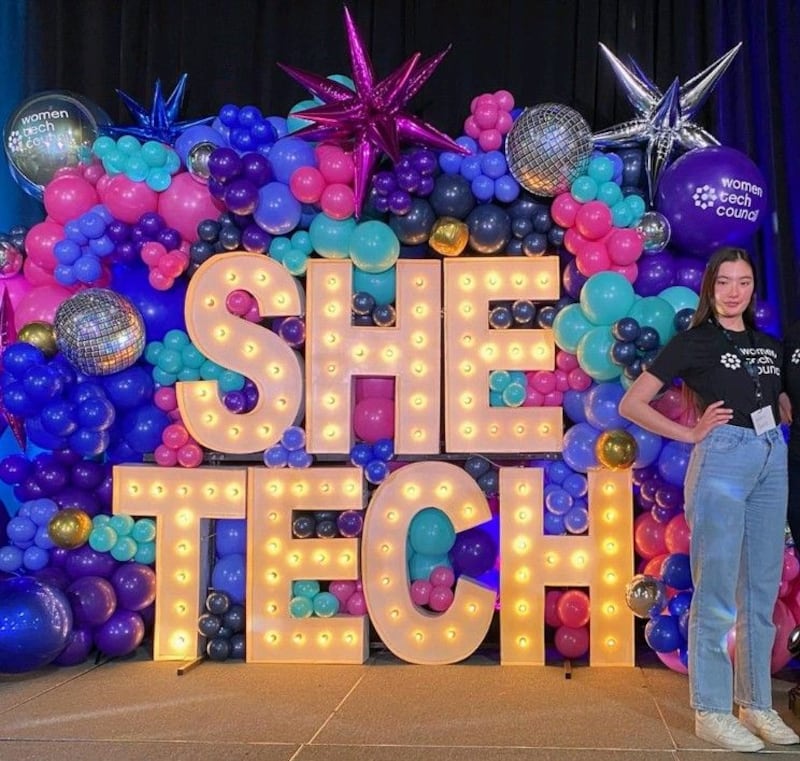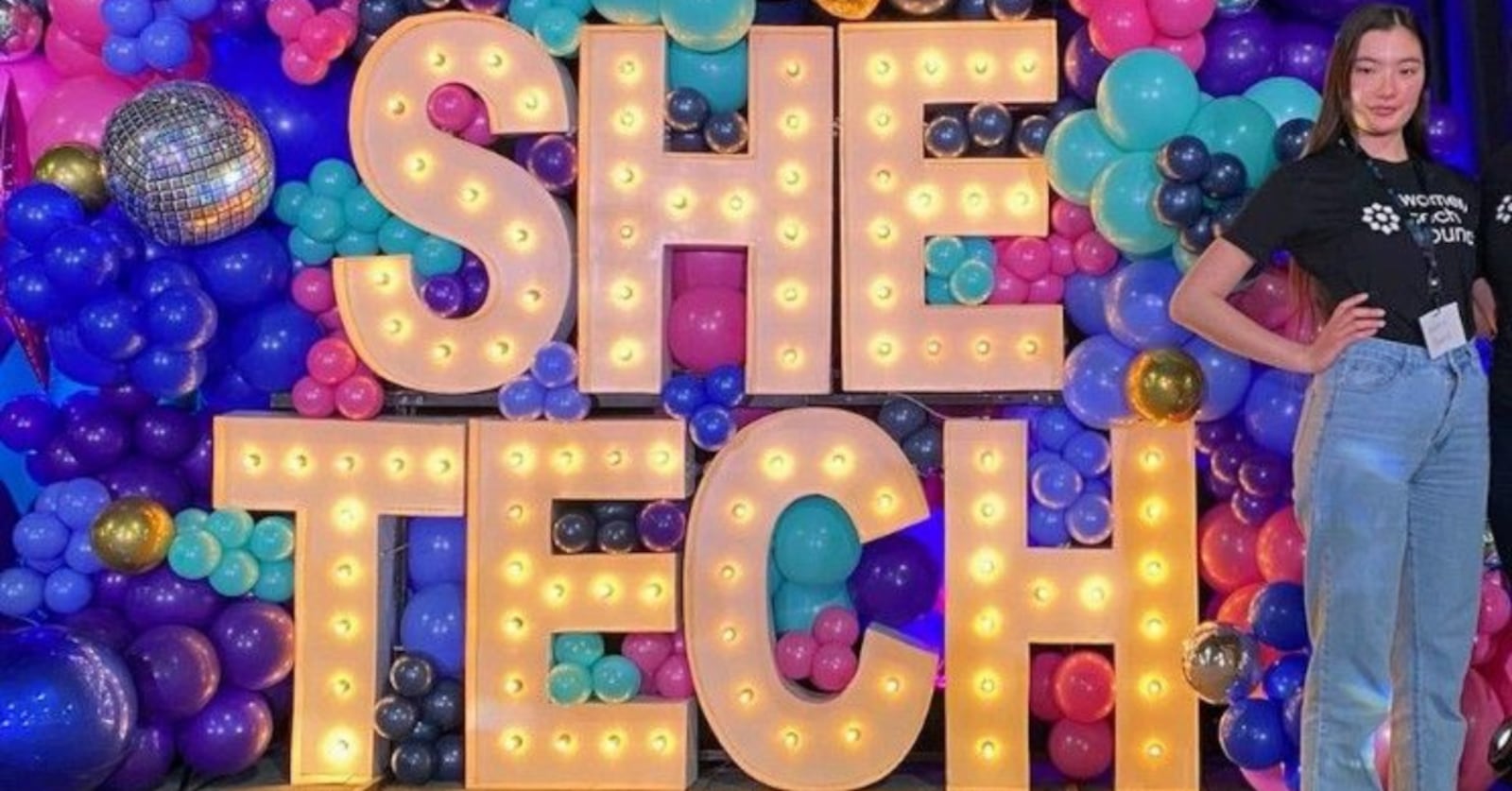What happens when you fail your first computer science test in high school?

You get an internship at Microsoft in college.
In colleges and universities around the world, women are less likely to complete their STEM degrees than men (48 percent vs. 65 percent). But the sadder numbers are all the women who never even make it that far. Research shows that many women don’t embark on STEM paths because they don’t believe they’re capable, even though the same study shows they are just as prepared as men. Women are more likely to feel marginalized as an isolated minority in their fields before they even hit the workforce, where numbers for recruitment and retention worsen. The courses are hard, job prospects are competitive, and finding a woman in any of these roles is challenging. With this outlook, they often drop out.
If both genders are entering college equally prepared, but women don’t believe there is a space for them, it won’t matter how well they learned coding or how great their teachers were. We will never increase the number of women in the tech talent pipeline until we change their perception of what’s possible. Without them, we’ll be missing essential insights and ideas to solve our biggest problems.
Angela was smart, ambitious and bravely taking on the challenge of being one of the few girls in her high school advanced computer science class. Angela was interested in the field, but an experience challenged her confidence. After an insane amount of work, she failed her first computer science test. Her hard work should have indicated otherwise, but this feedback led her to conclude that computer science wasn’t for her, as if her brain wasn’t made to do this kind of work and she shouldn’t continue.
Just in time, a friend told her about a program called SheTech, where she could meet women working in technology jobs and find out what it’s like to work in STEM. Angela attended SheTech Explorer Day, hoping to be introduced to an alternative field to computer science where she would feel more confident. Instead, she learned about more computer science jobs than she ever imagined. Angela met dozens of women working in the field whose work and personal journeys were fascinating, and they took the time to talk to Angela about her interests and future.
At SheTech Explorer Day, Angela was assured that she was capable of success and the courses she was taking were challenging for everyone. Stories about their own struggles and setbacks helped her see that there was a place for her in STEM. This experience inspired Angela to change her mind about herself and keep going with a new vision of what was possible in her personal future.
Today, Angela is at the University of Utah studying (you guessed it!) computer science. Angela finished high school as the Utah Sterling Scholar in computer technology and now excels in her college studies. She recently completed an internship at Microsoft. College courses are far more challenging than the ones she started with in high school, but she tries again when she gets stuck, and no setback or failure will remove her confidence in her chosen career path. The trajectory of Angela’s entire life changed because real women in STEM inspired her to keep going and do more than she ever thought possible.
This is the kind of activation we need for all girls. No matter what they’re interested in, they deserve the chance to see how technology is a part of that field and that there’s a path for them in STEM with so many opportunities and possibilities.
The next SheTech Explorer Day is on March 14, 2024. No matter where you work or live, talk to the high school girls you know about their interests, their future and the opportunities waiting for them in tech. Help them sign up so they can connect with role models who will inspire them and bolster the trajectory of their lives. We need them in STEM, and they need us to help them see how true that is.

